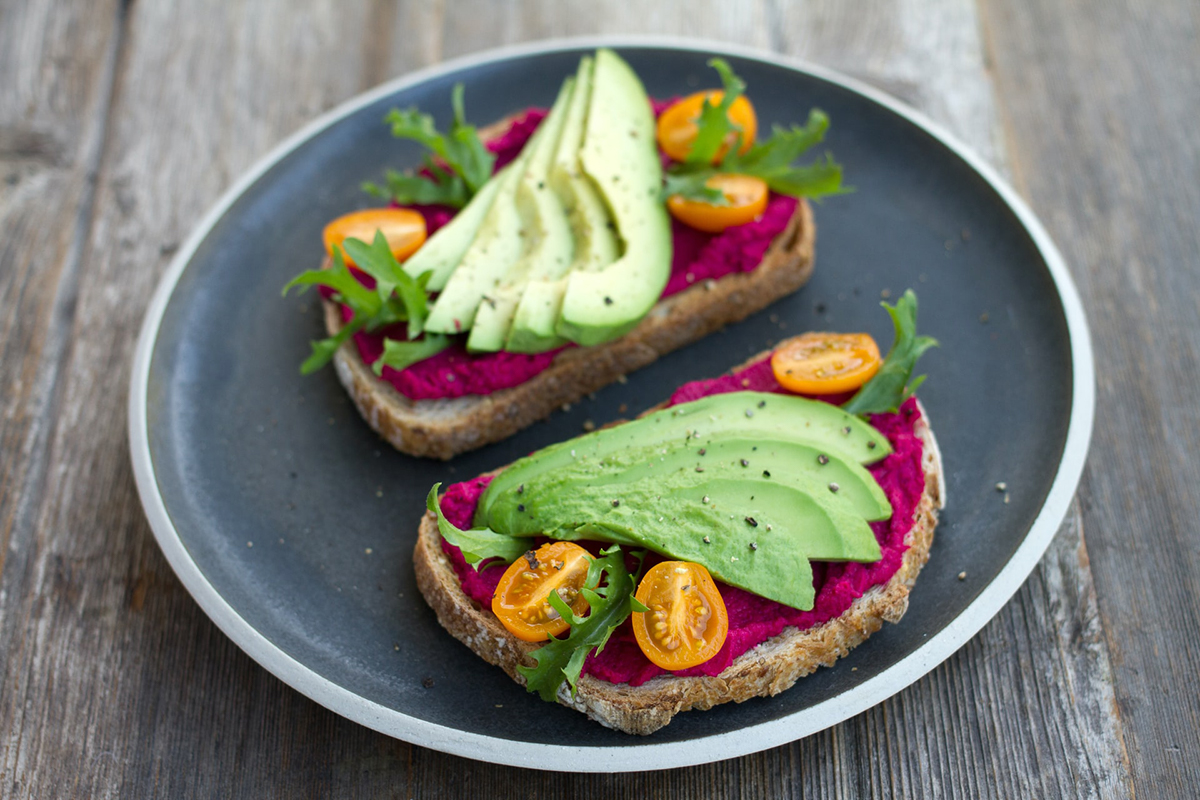
From wrinkles to joint pain and decreased muscle strength to lowered bone density, aging can bring some unpleasant effects. But that doesn’t mean people need to just sit back and wait for these effects to take hold. By ensuring your diet contains the correct vitamins, minerals, and other substances needed for healthy living, you can live life to the fullest even as you age. If you want to take back control over your aging body. Read on to learn about the best food sources of collagen.
[Related: 10 Bone and Joint Strengthening Superfoods]
What is Collagen?
Collagen is a type of abundant protein essential for maintaining the health and function of connective tissues in the human body. These tissues are responsible for weaving different body parts together- including your skin, organs, and bones- and giving the body much of its overall shape. Collagen is created through the breakdown of consumed proteins into amino acids, which form the building blocks of new proteins that our bodies can produce.
Types of Collagen
Overall, there are approximately 40 different types of collagen found in the human body. However, four distinct collagens are considered the most common. These include:
Type I Collagen
Type I forms fibers within the connective tissues associated with the skin, bones, tendons, and ligaments.
Type II Collagen
Type II forms less organized fibers than Type I collagen and is primarily found within the body’s cartilage.
Type III Collagen
Type III forms collections of thinner fibers than Type I collagen and directly contributes to the organization of cells within the body’s organs.
Type IV Collagen
Type IV collagen appears in what’s known as the “basement membrane” of the body, a sheet-like structure of various collagen cells that surround different tissues.
Collagen’s Role in Aging & Quality of Life
As people age, it becomes increasingly challenging to sustain sufficient collagen levels. We begin to produce less collagen in our skin and other body parts, resulting in wrinkles (especially for women who have already experienced menopause). The body also becomes less able to absorb all of the nutrients needed to produce collagen. Because of this, aging individuals must ensure they’re consuming enough collagen-rich foods and foods that can help enhance the overall collagen production process.
The Top 14 Best Food Sources of Collagen
Now that we’ve explored what collagen is and its overall importance in the body- especially for aging individuals- we can start talking about the best food sources of collagen that should be regularly included in your diet. These top 14 foods include:
1. Chicken

Many collagen supplements are actually derived from chicken. Since the favored white meat inherently contains so much of it, it’s highly recommended that those looking for a boost of collagen in their diet stick to eating chicken- preferably grilled- regularly.
2. Fish with skin

The next time you’re preparing a delicious fish dinner, think again before removing the skin. While the meat of the fish contains some collagen, the skin has more and can be a great way to add extra collagen to your diet.
3. Bone broth
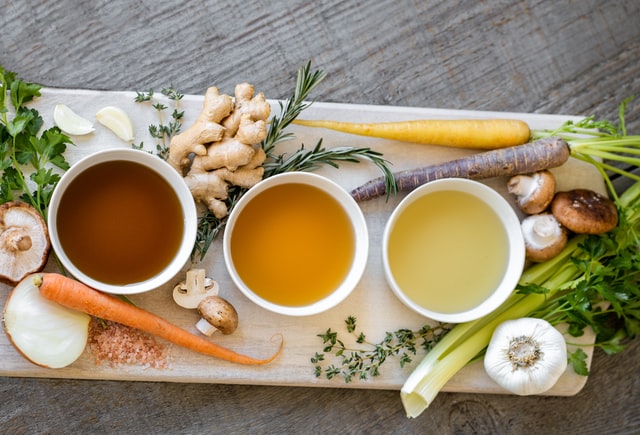
While not the absolute best source of collagen, it is by far one of the most popular and contains a host of other beneficial nutrients, including calcium, magnesium, glucosamine, chondroitin, amino acids, and more. Bone broth is produced by simmering the bones of animals in water for extended periods, which is believed to help extract collagen.
4. Egg whites
Even though eggs don’t contain connective tissue like many other animal products, egg whites have a significant amount of one of the critical amino acids responsible for collagen production; proline.
5. Avocado
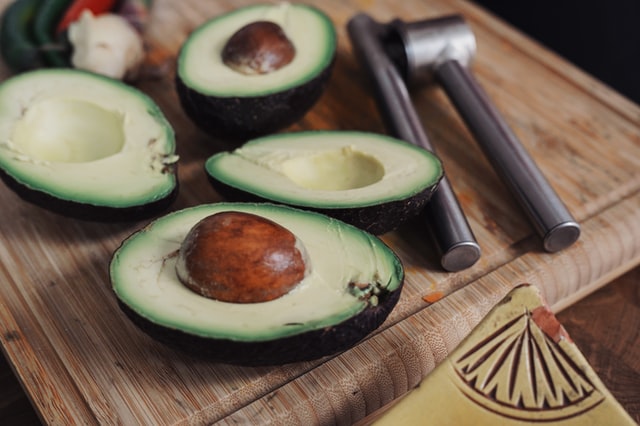
Avocados are a great source of both Vitamin E and Omega-3, which boost collagen production and help facilitate overall healthier skin.
6. Dark leafy greens
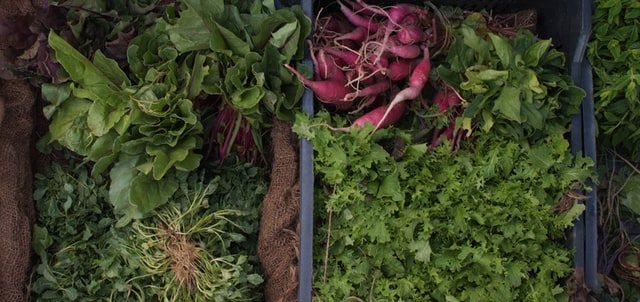
It’s general knowledge that leafy greens are a vital element of any healthy diet, whether you’re looking to enhance your collagen production level or not. Spinach, Swiss chard, kale, and various other salad greens contain a pigment called chlorophyll, which makes them green. Though chlorophyll is more known for its antioxidant properties, some studies have shown it can also increase the precursors to collagen production in the skin.
7. Citrus fruits
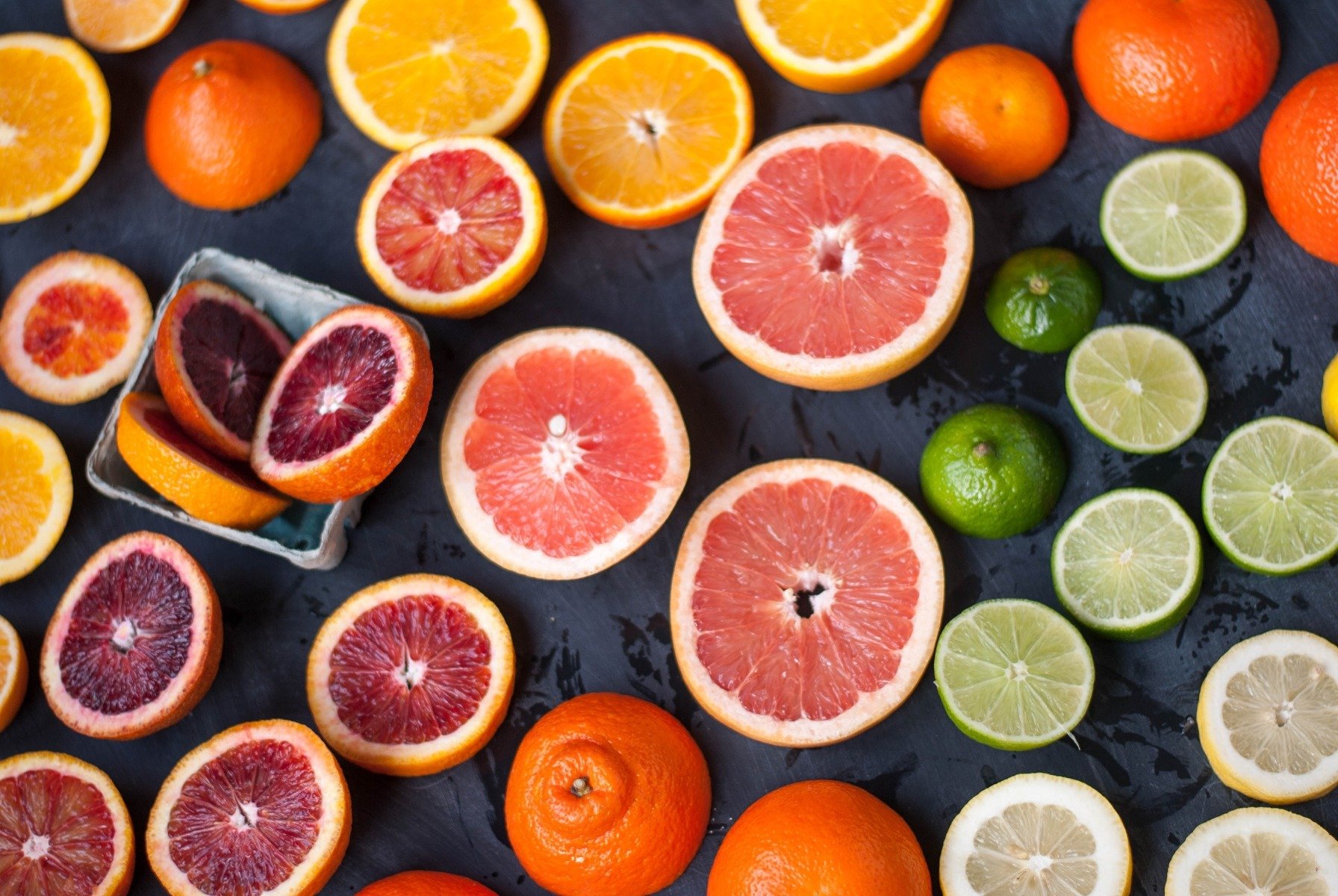
While not a direct source of collagen, citrus fruits (including oranges, lemons, limes, and grapefruits) contain large amounts of Vitamin C, a critical component to the body’s production of collagen precursors.
8. Berries
Berries are a more potent source of Vitamin C than oranges and other citrus fruits. Additionally, berries contain high levels of antioxidants, which help the body protect the skin and other cells against free radicals.
9. Broccoli
While broccoli isn’t a fruit, that doesn’t change the fact that as much as ½ cup contains the same approximate amount of Vitamin C as a small orange.
10. Tomatoes
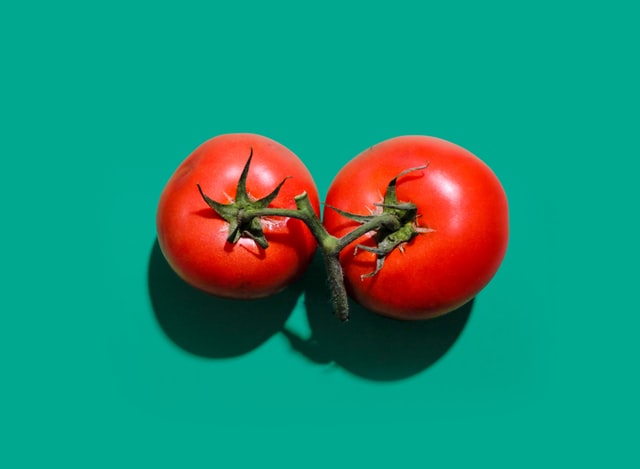
Tomatoes are a fantastic source of Vitamin C, just like other fruits (even though they’re commonly considered vegetables). In fact, a single, medium tomato can provide nearly 30% of the Vitamin C needed for collagen production. Additionally, tomatoes contain a massive amount of the antioxidant lycopene, which can help support the skin.
11. Guava and other tropical fruits
Yet another batch of stellar produce containing rich amounts of Vitamin C is guava and other tropical fruits, including kiwi, pineapple, and mango. Additionally, guava contains a small amount of zinc, which is another nutrient that’s essential for the collagen production process.
12. Nuts
Nuts, particularly cashews and pistachios, are a fantastic source of both zinc and copper, both of which can help boost the body’s ability to produce collagen effectively. They also contain large amounts of Vitamin E, which is another powerful antioxidant known to help fight the signs of aging.
13. Mushrooms
Mushrooms are a fantastic way to add some extra zinc to your diet, which will naturally help support your body’s collagen production processes.
14. Peppers
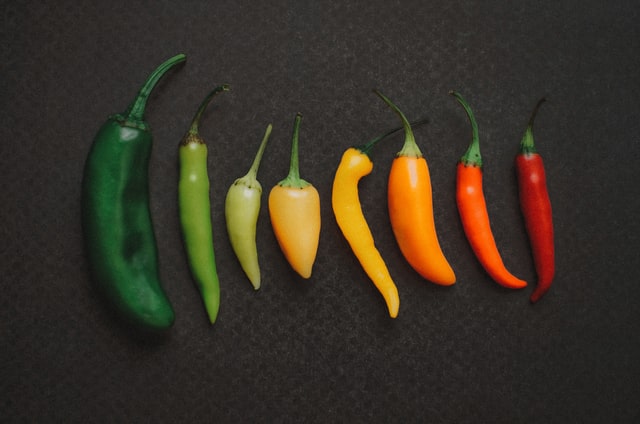
Not only do these delicious fruits contain large amounts of Vitamin C, but they also contain an anti-inflammatory compound called capsaicin that can help combat the signs of aging. In addition to capsaicin’s anti-aging properties, it may also help with weight management as it can help you to feel more satisfied.
The Importance of Avoiding Sugar if You Have Collagen Concerns
Readers should keep in mind that sugar and refined carbs can damage the collagen in their bodies while also causing unpleasant side effects, such as inflammation and potential weight gain over time. To ensure that you’re getting the most benefits possible from the above foods and any collagen health supplements you may be taking, it’s best if you avoid consuming too much sugar or refined carbs as part of your regular diet.
Related: 20 Foods That Increase Blood Flow and Circulation Naturally
The Bottom Line
As you age, it’s essential to adjust your diet to ensure you provide your body with everything it needs to stay healthy and function effectively. To help increase the amount of collagen in your body and naturally boost its production, consider adding each of the above foods into your regular meal plan, and also consider trying some quality health supplements to see what kind of additional benefits they can provide. Our medical supplement experts at Best in Nature are here to provide you with a vast range of quality products and educational tips on how to keep your body healthy and strong as you go through your later years.
This article is provided for informational purposes only and is not intended to be used as medical advice. If you have immediate concerns about your health and digestion, please seek the help of your physician.
*These statements have not been evaluated by the Food and Drug Administration. This product is not intended to diagnose, treat, cure or prevent disease.





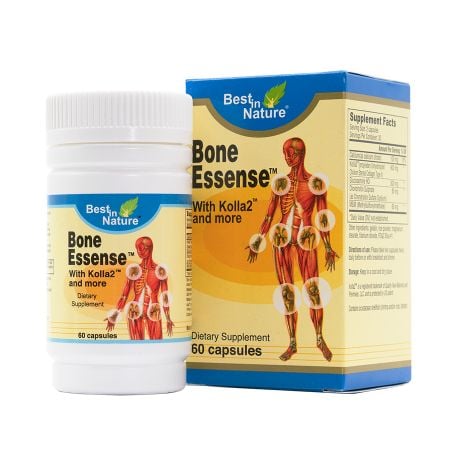
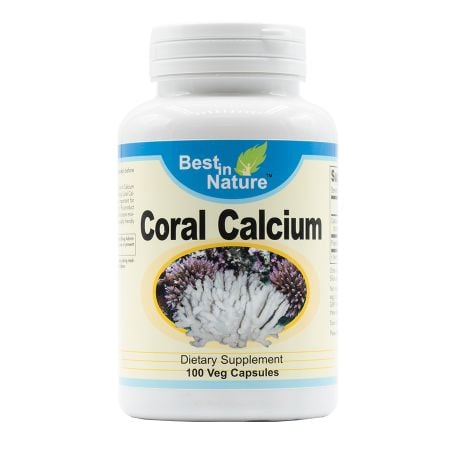
Validate your login
Sign In
Create New Account